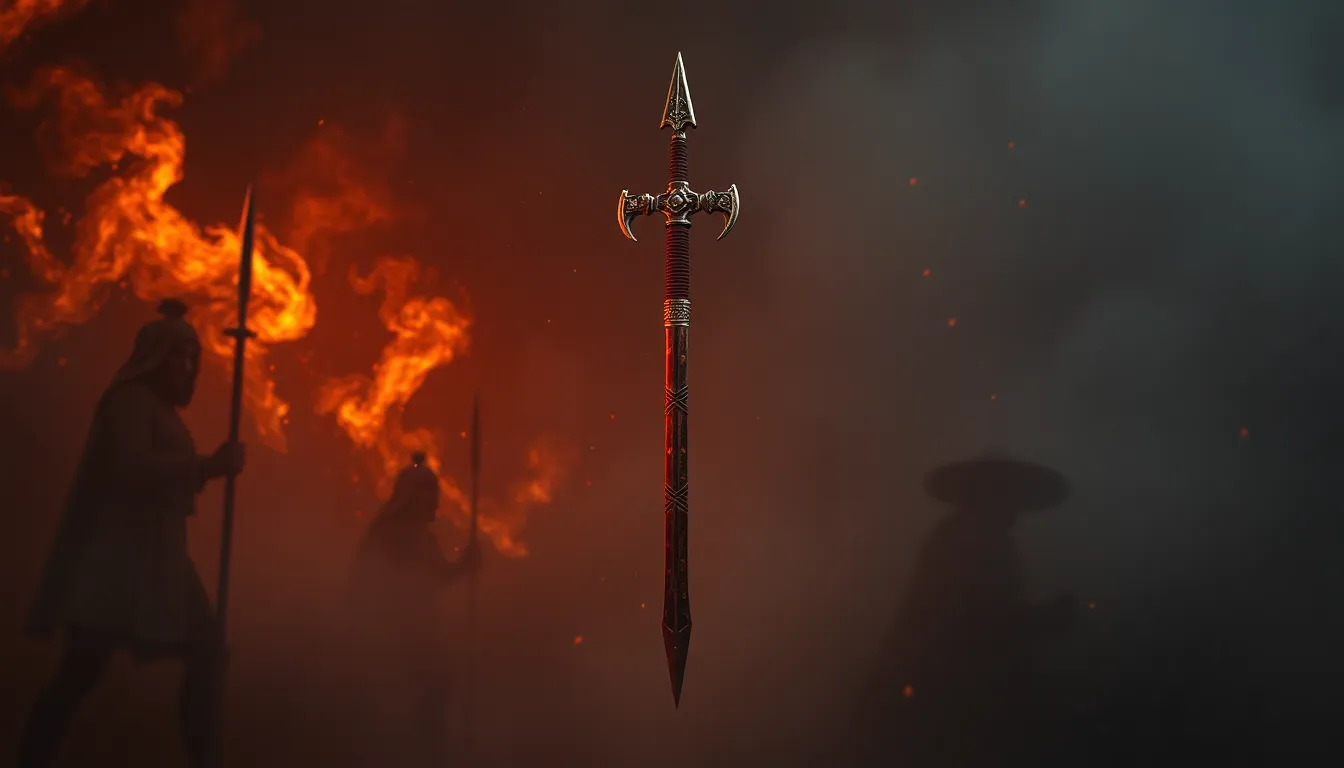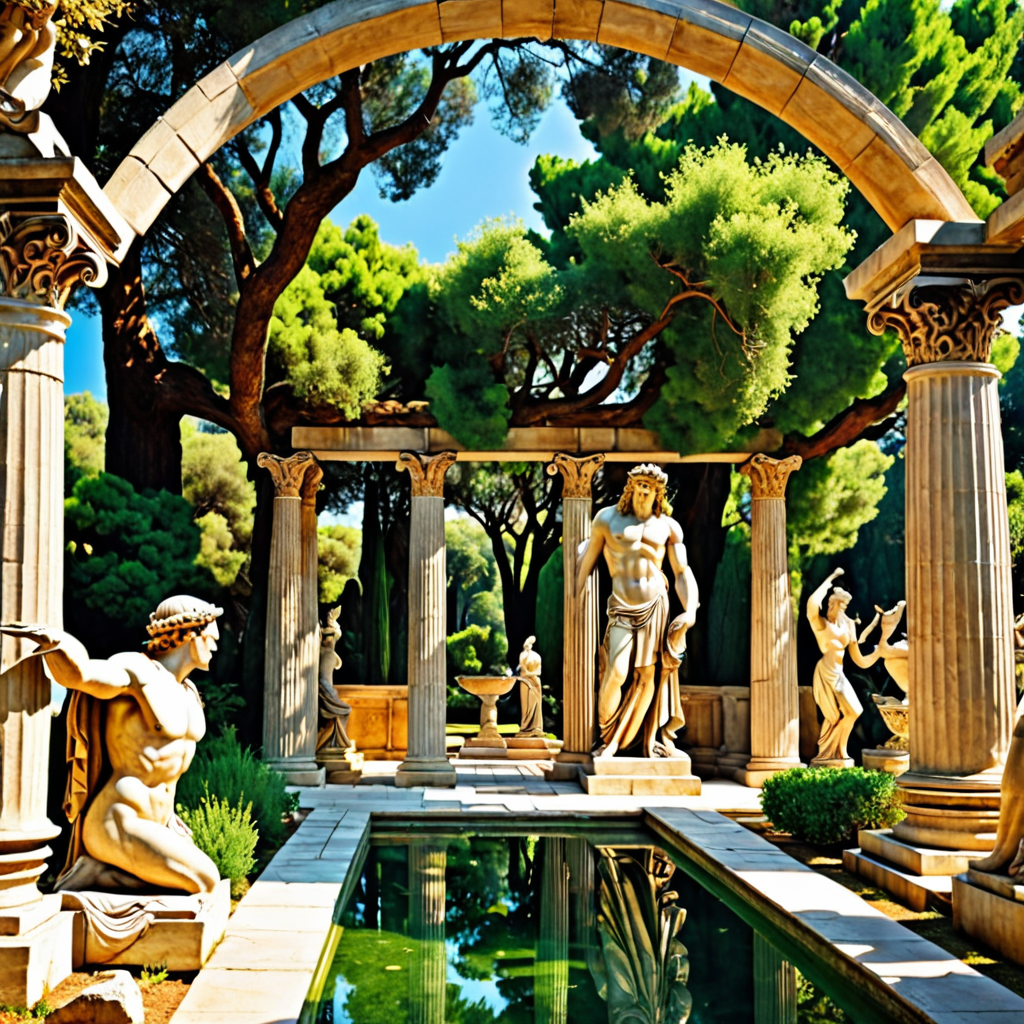The Weaponry of the Gods: How Mythology Shaped Ancient Warfare
I. Introduction
The relationship between mythology and warfare is a fascinating intersection where the divine and the mortal collide. Throughout history, the narratives woven into the fabric of mythology have profoundly influenced military practices and beliefs. From gods inspiring warriors to mythical weapons shaping battles, mythology has served as a guiding force in the realm of warfare.
This article aims to explore the intricate connections between mythological narratives and ancient military practices. By examining the roles of deities, legendary weapons, rituals, and epic tales, we will uncover how mythology not only shaped the strategies of warfare but also left a lasting impact on cultures around the world.
II. The Role of Deities in Warfare
In various cultures, gods and goddesses have been associated with war, serving as both protectors and instigators of conflict. Their favor was sought by warriors and commanders alike, as military outcomes were often believed to be influenced by divine intervention.
A. Major gods and goddesses associated with war in various cultures
- Ares and Athena in Greek mythology: Ares represented the chaotic and brutal aspects of war, while Athena embodied strategy and wisdom, highlighting the duality of warfare.
- Mars and Minerva in Roman mythology: Mars, akin to Ares, was revered as the god of war, while Minerva, like Athena, was associated with strategic warfare and wisdom.
- Odin and Thor in Norse mythology: Odin, the Allfather, was seen as a god of war and death, while Thor, with his legendary hammer Mjölnir, symbolized strength and protection in battle.
Divine favor was often believed to influence military outcomes, leading commanders to seek blessings before engaging in battle.
III. Mythological Weapons: Tools of Divine Warfare
Legendary weapons often carried deep symbolic meanings, representing divine power and authority in warfare. These weapons were not only tools of battle but also symbols of the gods’ favor and the legitimacy of rulers.
A. Description of legendary weapons and their symbolism
- Zeus’s thunderbolt: A symbol of authority and power, the thunderbolt was a weapon of choice for Zeus, representing his control over the skies and fate.
- Excalibur in Arthurian legend: This mythical sword, bestowed upon King Arthur, symbolized rightful sovereignty and the divine right to rule.
- The spear of destiny: Believed to have pierced the side of Christ, this weapon was thought to grant invincibility and immense power to its wielder.
The cultural significance of these weapons extended beyond their physical form; they embodied the ideals and beliefs of the societies that revered them.
IV. Rituals and Offerings to the Gods
To secure divine support, ancient cultures engaged in various rituals and offerings before battles. These practices were not only acts of devotion but also served to bolster the morale of soldiers and commanders.
A. Pre-battle rituals aimed at securing divine support
Rituals often included prayers, sacrifices, and ceremonies dedicated to war deities, seeking their favor and guidance in combat.
B. Sacrifices and dedications in different cultures
- In ancient Greece, soldiers might sacrifice animals to Ares or Athena before a battle.
- Roman generals would dedicate spoils of war to Mars after victory.
- Norse warriors might offer their slain enemies to Odin in hopes of a glorious afterlife.
C. The psychological impact of these rituals on soldiers and commanders
The rituals fostered a sense of unity and purpose, reinforcing the belief that they were part of a larger cosmic battle supported by divine forces.
V. Heroic Epics and Their Influence on Military Strategies
Epic narratives, such as the Iliad and the Mahabharata, played a crucial role in shaping military strategies and cultural perceptions of warfare. These tales often depicted the interplay between gods and mortals, providing lessons in valor, strategy, and the consequences of hubris.
A. Analysis of epic narratives
In the Iliad, the wrath of Achilles and the interventions of gods like Hera and Zeus illustrate how divine influence can sway the tides of war. Similarly, the Mahabharata explores themes of dharma (duty) and ethics in warfare, guiding warriors in their conduct on the battlefield.
B. How tales of gods and heroes shaped tactics and strategies
These stories inspired leaders to adopt strategies that reflected the qualities of revered heroes, promoting tactics that emphasized courage, loyalty, and honor.
C. The role of legendary figures in motivating troops
Warriors often drew inspiration from legendary figures, believing that emulating their bravery would lead to success in battle.
VI. The Evolution of Warfare Inspired by Mythology
As societies transitioned from mythological to historical warfare, the influence of mythology remained evident. Mythological narratives not only reflected the military practices of their time but also inspired changes in technology and tactics.
A. Transition from mythological to historical warfare
With the rise of organized armies and advanced weaponry, the reliance on divine intervention began to wane, though the cultural narratives persisted.
B. How myths reflected and influenced changes in military technology and tactics
- Mythological tales often emphasized the importance of strategic planning and technological innovation.
- Heroes equipped with magical weapons inspired real-world advancements in military technology.
C. The lasting legacy of mythological warfare concepts in modern military thought
Modern military theories often echo the strategies and principles found in ancient mythological narratives, demonstrating the enduring legacy of these concepts.
VII. Symbolism of War in Art and Literature
Art and literature have played a significant role in depicting the symbolism of war and its divine connections. Ancient art often showcased war gods and epic battles, reflecting cultural perceptions of warfare.
A. Depictions of war gods and battles in ancient art
From Greek pottery illustrating scenes of battle to Roman sculptures commemorating military victories, art served as a medium to convey the valor and might of warriors under divine protection.
B. The impact of these representations on cultural perceptions of warfare
These artistic representations reinforced the belief that success in battle was intertwined with divine favor and heroic deeds.
C. Literature’s role in preserving mythological narratives of war
Epic poems, historical accounts, and philosophical treatises have preserved these narratives, ensuring that the lessons and values associated with mythological warfare continue to resonate.
VIII. Comparative Analysis: Cross-Cultural Influences
Examining the approaches of different civilizations reveals both similarities and differences in how mythology influenced warfare. Various cultures developed unique mythological frameworks that shaped their military practices.
A. Similarities and differences in how different civilizations approached warfare through mythology
- Common themes include divine favor, heroic endeavors, and the moral implications of war.
- Differences arise in the specific deities worshipped and the rituals performed.
B. Case studies of mythological warfare concepts in Mesopotamia, Egypt, and Mesoamerica
In Mesopotamia, deities like Marduk were central to military endeavors, while in Egypt, gods like Horus represented kingship and conquest. In Mesoamerica, the warrior god Huitzilopochtli embodied the necessity of war for cosmic balance.
C. The exchange of ideas and narratives between cultures
Cultural interactions facilitated the exchange of mythological concepts, enriching the military traditions of multiple civilizations.
IX. The Legacy of Mythological Warfare in Contemporary Society
The influence of ancient myths on modern military thought and practice is evident in various aspects of contemporary society. The narratives surrounding warfare continue to inspire leaders, strategists, and soldiers today.
A. How ancient myths still influence modern military
Concepts of honor, bravery, and strategy drawn from mythological tales persist in military training and leadership philosophies, attesting to the enduring legacy of these narratives.
In conclusion, the weaponry of the gods and the narratives surrounding warfare significantly shaped ancient military practices. The interplay between mythology and warfare is a testament to the human desire to understand conflict through the lens of the divine, leaving a profound impact on cultures throughout history.



